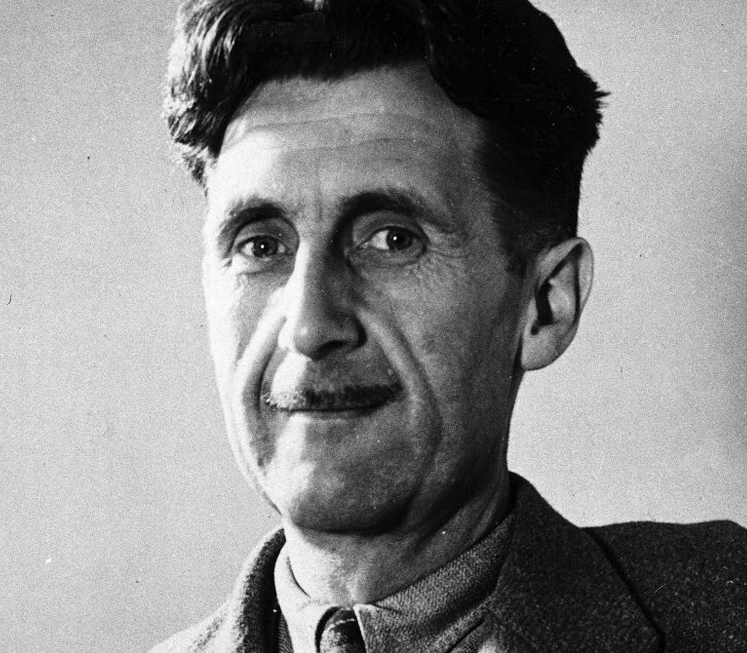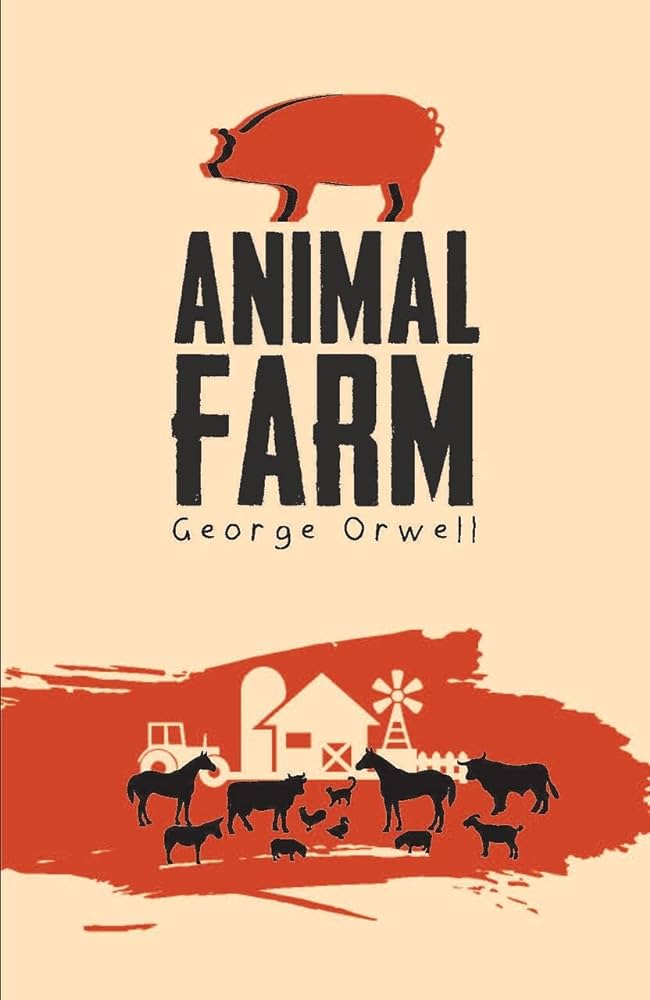At dailytechposts.com. we're thrilled to present the remarkable life story of one of the 20th century's most influential and prophetic figures - George Orwell. Though primarily celebrated as a literary genius, Orwell's innovative ideas and keen insights also left an indelible mark on the world of technology and innovation.
Born in 1903 as Eric Arthur Blair, this enigmatic Englishman would go on to craft some of the most iconic and thought-provoking works of fiction the world has ever known. From the biting social commentary of Animal Farm to the chilling dystopian masterpiece Nineteen Eighty-Four, Orwell's writing possessed an uncanny ability to peer into the future and warn of the dangers that technological advancement and concentrated power posed to individual liberty.
But Orwell was no mere armchair critic. His life experiences - from serving in the colonial police force in Burma to fighting against fascism in the Spanish Civil War - imbued his work with an urgency and authenticity that continues to resonate powerfully with readers today. Indeed, it was Orwell's deep understanding of how technology could be wielded by authoritarian regimes to monitor, manipulate and control populations that gave rise to concepts like "Big Brother" and "newspeak" - terms that have become ingrained in our cultural lexicon.
In the digital age, where our every move is tracked, our data mined, and our attention commodified, Orwell's warnings about the dark potential of technology have never been more prescient. As we seek to navigate the rapidly evolving landscape of innovation, we would do well to heed the lessons of this visionary writer, whose profound insights continue to shape our understanding of the relationship between technology, power, and the human condition.
Join us as we explore the life, times, and enduring legacy of the one and only George Orwell - a true giant whose influence extends far beyond the realm of literature and into the very heart of our technological future.

A chronology of the life and literary career of George Orwell, 1903-1950 - includes a list of resources and a select bibliograph.
George Orwell was an English novelist, essayist, and critic famous for his novels Animal Farm (1945) and Nineteen Eighty-four (1949). The latter of these is a profound anti-utopian novel that examines the dangers of totalitarian rule.
He was educated in England and, after he left Eton, joined the Indian Imperial Police in Burma, then a British colony. He resigned in 1927 and decided to become a writer. In 1928, he moved to Paris where lack of success as a writer forced him into a series of menial jobs. He described his experiences in his first book, 'Down and Out in Paris and London', published in 1933. He took the name George Orwell, shortly before its publication. This was followed by his first novel, 'Burmese Days', in 1934.
Orwell Archive is located at University College, London and is the most comprehensive body of research material relating to the author George Orwell (Eric Blair) (1903-1950) anywhere. Manuscripts, notebooks and personalia of George Orwell were presented in 1960 on permanent loan by his widow on behalf of the George Orwell Archive Trust, supplemented by donations and purchases.
The aim of the Trustees of the Archive was to make a research centre for Orwell studies, by bringing together all [Orwell's] printed works, including newspaper items; private correspondence; other private papers in the possession of his widow; printed matter other than his own which will help later generations to understand the controversies in which he was involved; and tape recordings or written statements by all with first hand experience of him of any consequence.
An Orwell Chronology
- 1903 Eric Arthur Blair born at Motihari, Bengal, India, June 25th, son of Richard Walmesley Blair and Ida Mabel Blair (nпїЅe Limouzin)
- 1904 Brought to England by his mother. Family settles in Henley-on-Thames, Oxfordshire
- 1908-1911 Educated at Sunnylands, an Anglican school, Eastbourne, Sussex
- 1911-1916 Boarder at St. Cyprian's preparatory school, Eastbourne, Sussex
- 1912 Richard Blair, retired from India Civil Service, returns to England. Family moved to Shiplake near Henley
- 1914 First work published: Awake Young Men of England (poem)
- 1915 Blair family moves back to Henley
- 1917 Spends Lent term at Wellington College
- 1917-1921 King's Scholar, Eton College
- 1921 Parents move to Southwold, Suffolk (December)
- 1922 Blair attends cramming establishment in Southwold (January-June), to prepare for India Office examinations
- 1922-1927 Assistant Superintendent of Police, Indian Imperial Police, Burma
- 1928-1929 Lives in Paris, writing and later working as a dishwasher. Hospitalized with Pneumonia (February)
- 1930-1931 Goes tramping in London and Home Counties. Writes early version of Down and Out in Paris and London. Contributes essays to Adelphi (The Spike and The Hanging) under his own name
- 1932-1933 Teaches at the Hawthorns, a small private school in Hayes, Middlesex
- 1933 First book, Down and Out in Paris and London published by Victor Gollancz. Uses pseudonym "George Orwell" for the first time. Teaches at Frays College, Middlesex. Hospitalized with pneumonia
- 1934 Gives up teaching. Spends ten months in Southwold. Burmese Days published in United States (October). Moves to Hampstead, London (November)
- 1934-1935 Works as part-time assistant in Booklover's Corner, Hampstead. A Celergyman's Daughter published (March 1935). Burmese Days published in England (June 1935). Meets Eileen O'Shaughnessy, age 30
- 1936 In industrial Lancashire and Yorkshire, investigating working class life and unemployment at suggestion of Victor Gollancz (January-March). Moves to Wallington, Herts. (April). Keep the Aspidistra Flying published (June). Marries Eileen O'Shaughnessy. Attends ILP Summer School, Letchworth, Herts. (July). Leaves for Spain (December)
- 1937 In Spain (January-June). Corporal with Partido Obrero de Unificacion Marxista detachment of the Aragon front. Involved in street fighting in Barcelona between government and anarchist troops. Wounded in throat by sniper. Honorable discharge for medical reasons from P.O.U.M. militia. Evades arrest during anti-P.O.U.M. purge in Barcelona. The Road to Wigan Pier published (March)). Left Book Club edition of 40,000 copies
- 1938 In tuberculosis sanitorium, Kent. Homage to Catalonia published (April). Joins ILP (June). Goes to Morocco for his health (September)
- 1939 Returns to England (March). Coming Up for Air published (June). Death of father
- 1940 Inside the Whale published (March). Moves to London (May). Writes reviews for Time and Tide and Tribune. Joins Local Defense Volunteers (Home Guards)
- 1941 The Lion and the Unicorn published (February)
- 1941-1943 Talks Producer, Empire Department, BBC, in charge of broadcasting to India and Southeast Asia. Death of mother
- 1943-1946 Literary Editor of Tribune
- 1944 Orwell and Eileen adopt a one-month old child, whom they name, Richard Horatio Blair
- 1945 War correspondent for The Observer in Paris and Cologne (March-May). Death of Eileen while under anesthetic for operation (March 29). Covers first post-war election campaign (June-July). Animal Farm published (August)
- 1946 Critical Essays published (February). Moves to Barnhill, Isle of Jura (May)
- 1947 Enters Hairmyres Hospital, near Glasgow, with tuberculosis of the left lung (Christmas Eve)
- 1948 Returns from hospital to Jura (July). Completes revision of Nineteen Eighty-Four by December
- 1949 Enters Cotswolds Sanitorium, Cranham, Gloucestershire (January). Nineteen Eighty-Four published (June). Over 400,000 copies sold in first year. Transferred from Cranham to University College Hospital, London (September). Marries Sonia Bronwell, an editorial assistant with Horizon, in hospital (October)
- 1950 Dies suddenly in University College Hospital, of a hemorrhaged lung (January 21). Buried in the chruchyard of All Saints, Sutton Courtney, Berkshire
In 1945, Orwell's 'Animal Farm' was published. A political fable set in a farmyard but based on Stalin's betrayal of the Russian Revolution, it made Orwell's name and ensured he was financially comfortable for the first time in his life.

'Nineteen Eighty-Four' was published four years later. Set in an imaginary totalitarian future, the book made a deep impression, with its title and many phrases - such as 'Big Brother is watching you', 'newspeak' and 'doublethink' - entering popular use.
By now Orwell's health was deteriorating and he died of tuberculosis on 21 January 1950.
More informations about life George Orwell and his novels in video: